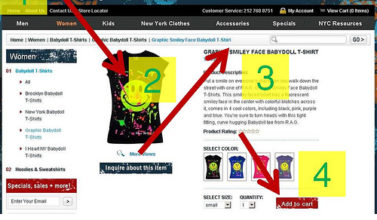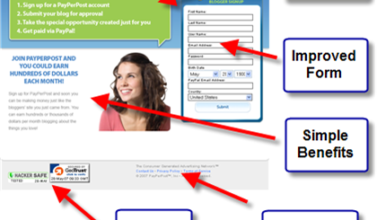
In our last blog on Top Social Media Tips we spoke about the importance of content marketing. Along the same digital marketing vein is keyword research. Without keywords, SEO does not exist. Keywords are like a roadmap for your SEO campaigns as they tell you where to go and whether or not you’re making progress. They also help you identify thoughts, fears and needs of your target audience.
Putting it plainly, keyword research is market research for the 21st century. Before we dive in, let’s see how the internet and search engines came to be the powerful tools they are today.
The History Of Search Engines And The Internet As We Know It
Did you know that the first search engine was called Archie? Alan Emtage from McGill University in Montreal created Archie back in 1990. At that stage it was essentially a database of file names one could search to find what they were looking for.
Tim Berners-Lee invented the concept of the World Wide Web In 1991 which was a system whereby information could be transferred easier and faster. When the internet first started there wasn’t an easy way to find the information or websites you were looking for. Most of us simply kept a list of our favourite websites we liked. The advent of search engines made all the difference and fixed this problem with aplomb.
The Importance Of Effective Keyword Research
Keyword research is not just about SEO. In fact, it’s one of three important SEO factors along with link building and content marketing. Search results are dependent on anything related to SEO that the search engine found relevant to a search based on popular queries for that term. Keywords show what your company is known for and in tools like Google Analytics or SEMrush, you can see where your organic traffic originates.
Using the right keywords for your business means that your content marketing team also knows exactly the type of content to produce. This is essential for SEO but as always, your content needs to be interesting, relevant and value-adding. The right keywords not only benefit your organisation with more traffic, you’ll also know your customers better than your competitors.
Look at untapped buyer keywords your competitors don’t know about. When you optimise your on-page SEO around the right keywords, your site is more likely to appear at the top of SERP’s. This means more traffic, more leads and sale conversions.
While GKP (Google Keyword Planner) is a great tool for providing related keywords, it doesn’t provide much value when suggesting new keyword ideas. To be successful you need to find keywords closely related to the topic but also those not directly related to what you’re offering. These are often among the most profitable. Find keywords or phrases not many companies have used and you’ll be on the right track.
Keyword Research Tips and Tricks
Before using a keyword research tool or playing with title tags, you MUST identify niche topics in your industry. Use buyer personas to help identify and categorise potential customers. Valuable data points to include in buyer personas based on your keyword research include the following:
- Age
- Gender
- Location (City, State, Province or Country)
- Income bracket
- Hobbies and interests
- Problems or challenges they face
- What they want to accomplish, i.e. personal and professional goals or objectives
Depending on your industry, you may have multiple buyer personas with different data points. One way or another, people search for you using keywords/phrases directly or indirectly related to your industry. Therefore, identifying the search intent of your own target audience is vital. Let’s look at the term “digital marketing” as an example. Type it into Google and see what happens.
Most of the results at the top are about digital marketing courses or similar. If you scroll down you’ll notice that Google also shows what other people searched for in relation. This is important when determining alternative keywords you could use.
If you’re offering digital marketing services that entail web design, social media marketing, PPC and content marketing, think of how your customers search for you online. Variations of basic body keywords would be “Paid Search Advertising”, “PPC Ads”, “Digital Marketing Services” and “Social Media Management”. These are mostly generic and hard to rank for as most marketing agencies do the same.
Use Google wisely and pay attention to the autocomplete functionality as it shows which searches are most popular for any term. Google SERP’s also show who your main competitors are giving you the opportunity to research their other keyword rankings.
How To Use Long-Tail Keywords For Better Google Rankings
Long-tail keywords are vitally important and for good reason. Google uses over 200 ranking factors to determine your website search ranking and this is specifically at page-level. Using long-tail keywords as titles (H1) or at least subtitles (H2, H3, H4) in your blog articles is highly recommended.
Regardless of the content, whether a blog post or an eCommerce page, try to closely match your H1 tags to the logical answer both Google and the user is looking for. The closer the match, the higher you’ll rank in search engine results. As an example, a long-tail keyword like “What are the benefits of digital marketing” as your blog title will yield good results.
In addition, using long-tail keywords as anchor text links in your blogging efforts also helps you rank higher. While this is a good technique, don’t overuse it. As far as PPC campaigns go, long-tail keywords beyond 4 words are not recommended. However, they’re incredibly powerful for content marketing, SEO and even social media.
The difference between a website with loads of organic traffic and one that gets none is in the keywords. The golden rule when implementing keyword research is to always think like your customer.
Contact us if you need assistance with setting up your digital marketing strategy, keyword planning and implementation. We specialise in SEO, PPC, Web development, Social Media, Marketing Automation among others and would love to hear from you.
Related Post
What’s the single...
Adam Vincenzini from Comms Corner recently posted a very good article which I think goes...
- January 25, 2011
- By Rob Thomas
- Blogging
Effective Facebook Marketing...
With over 600 million users, Facebook represents the single most connected platform on...
- March 1, 2011
- By Nadine Thomas
- Latest Online Trends
Monitor, Influence and Lead...
Get Actively Involved in the Outcome of Search Results Don’t take negative publicity...
- April 28, 2011
- By Rob Thomas
- ORM
Free Online Reputation...
Listen to What’s Being Said About You Online (Free online reputation monitoring...
- May 5, 2011
- By Rob Thomas
- ORM
Top Tips for Product Page...
As the internet evolves and user expectation becomes increasingly sophisticated, creating...
- May 31, 2011
- By Rob Thomas
- e-Commerce
How To Drive Sales With...
Landing pages have long been the primary tool of the web-savvy marketer. Whether the...
- June 12, 2011
- By Nadine Thomas
- e-Commerce












Leave a Comments